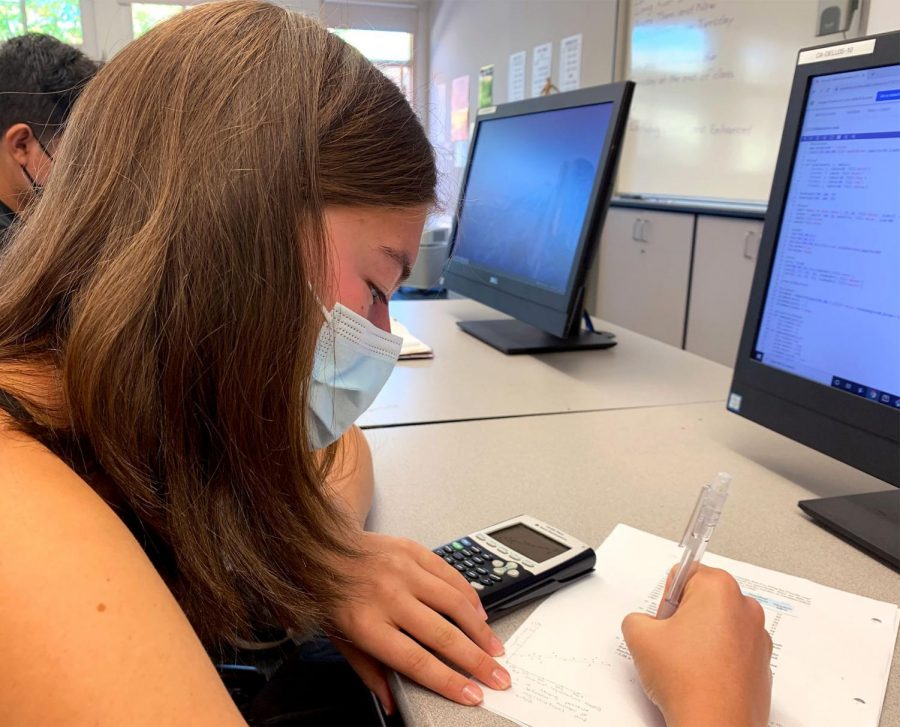With college application season currently happening, the relevance of the SAT is an ongoing debate. Since the pandemic, SAT scores have not been required in applications for over 1,000 colleges and universities.
The question is, should colleges require the SAT? Or, better yet, is it worth the struggle for the students to study for a test that won’t have much of an impact on college applications?
“I do not think the SAT is a ‘make or break’ in college applications, but that’s not to say taking it is not valuable because some colleges still reach out with scholarships to those who score well,” Mikael Cheng, a junior, said.
Many students have taken SAT prep courses and bought prep books to prepare themselves for this exam. However, after recent changes, the demand to receive good scores has declined.
“I don’t think I had that much external pressure to get a good score,” Kayla Hogan, a senior, said. “So many schools now are making their application tests optional.”
From about 1.7 million students who took the SAT in 2017 to 2.2 million in 2019, the number of students taking the SAT has increased year by year. Due to the changes during the pandemic, that number has dropped to 1.5 million.
“I think people are definitely starting to realize that it is not necessarily an accurate measure of academic merit but rather a measure of strategic test-taking,” Cheng said.
Even more students – around 4 million – took the PSAT in 2019. However, Carlmont’s College & Career assistant Nina Rasor says that taking the PSAT is unnecessary for students if they aren’t taking the SAT and since practice exams are available at any time on the College Board website.
Many students believe that they will benefit from the new changes in the admission system, as it opens up to other options for showcasing their strengths.
“I think it’s actually a step in the right direction,” Hogan said. “SAT scores are just not the best way of measuring people’s capabilities.”
This does not mean those who have received competitive scores on the SAT will find a portion of their application to be off the table.
“People who would have done well on the SAT no longer have this portion on their application that may appeal to certain colleges,” Jasmine Lorrayne Yu, a junior, said. “Whereas those who may not perform as well have more chances to show their other skills aside from those demonstrated by the test.”
There are many different stances on this new approach to assessing a student’s capabilities, as some students think colleges are beginning to look more at other aspects of their application, such as essays and extracurricular activities without submitting an SAT score.
“I think the SAT is just an outdated way of measuring students’ capabilities, and there’s a lot of issues with getting equitable resources for everybody,” Hogan said. “I think it’s just something we can leave behind, honestly.”
Contrastingly, some argue that taking the test can still be useful when applying to colleges.
“In previous years, the SAT has always been an important component to a college application,” Lorrayne Yu said. “So I believe that doing well on it and including it in the application would be a good move.”
Despite these two opposite opinions, some think colleges and universities should agree on a different test that can better gauge a student’s academic abilities.
“In some cases, it could be a useful way to compare a student’s potential,” Victoria Lehman, a sophomore, said. “But because so many universities are on different pages right now about whether or not they are going to accept it, it should not be required.”
All in all, changes in the SAT may be only temporary for most colleges, at least until 2024, and the uncertainty on whether or not SAT scores should be relevant to applications is still up for discussion.














